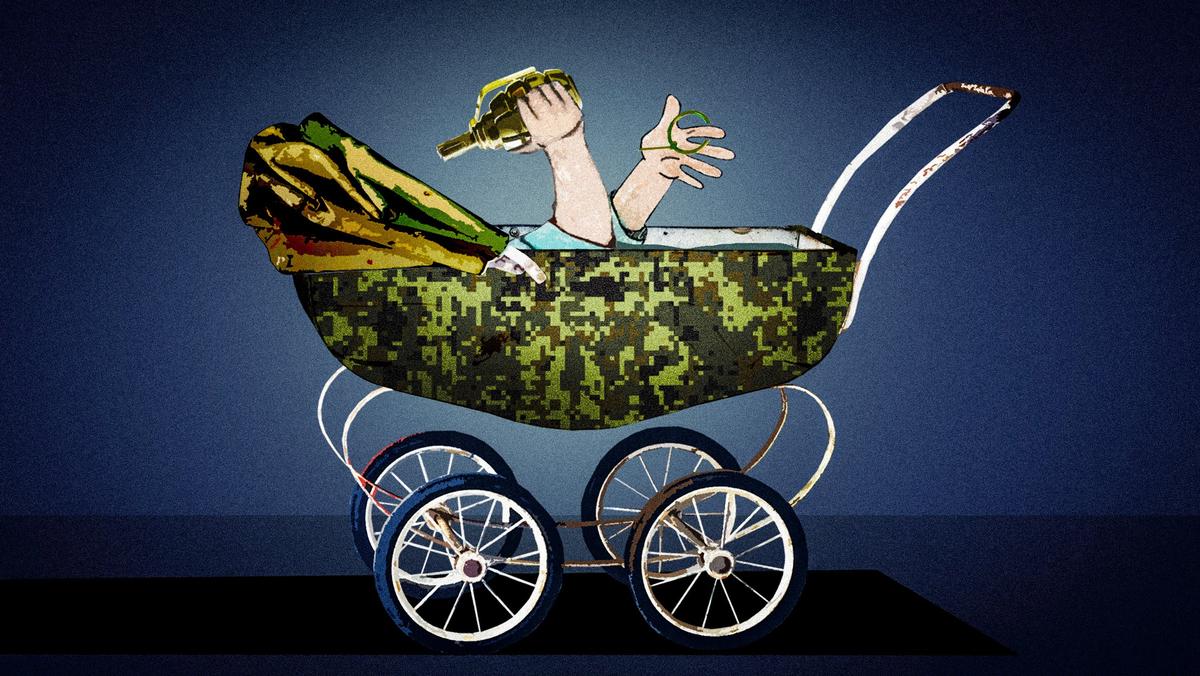Since the beginning of Russia’s full-scale invasion of Ukraine, Russian schools, kindergartens and other educational facilities have held 200,000 military-themed patriotic events related in one way or another to the war.
Teachers task kids with sewing camouflage netting and pullovers for the conscripts, to write letters to the frontline, and to bake Easter bread for the military.
Around a thousand educational facilities have tried to convince the teenagers to sign a military contract and head for the battle zone right after their graduation. We have analysed the activities of 45,000 Russian educational institutions, and here is our insight into how militarism has flooded Russia’s schools.
Educational facilities, such as regular and vocational schools, as well as kindergartens, have arranged no less than 9 million activities from the start of the war, Novaya-Europe’s calculations say. Each one out of six was of militarist nature. Those are 1.5 million military-themed patriotic activities of all kinds, including marching and singing contests, grenade throwing competitions, and meet-and-greet sessions with servicemen.
Of those 1.5 million, almost 200,000 were related to the war in Ukraine (or, as the Russian authorities call it, the special military operation, abbreviated as “SMO”). The number of such activities doubled in May compared to last year.
In the first couple of days after the war began, lectures on the threat of NATO expansion were held nationwide. But soon enough, it seemed that teachers were no longer forced to bring up the war in Ukraine: last May when the Victory Day was celebrated, educational institutions mentioned Ukraine three times less compared to the first weeks of the invasion.
However, it started to become almost impossible to ignore the “special operation” in the new academic year. The Important Conversations classes were introduced, obliging teachers to discuss patriotic topics with children, which include the heroic feats of Russian soldiers in Ukraine, the liberation of Donbas and Crimea, as well as dozens of activities offered by the Education Ministry, such as “A Letter to a Soldier” or “The Hero’s Desk”.
How children are forced to praise the war
In April, a village school in the Altai region unveiled two “hero’s desks” to commemorate its alumni. One lost his life during the Soviet period in Afghanistan, the other did the same recently in Ukraine. “Both stepped into immortality at 20 years old,” the school’s group says.
The Hero’s Desk is one of the first campaigns supporting Russia’s servicemen in Ukraine. The schools whose alumni had been killed in the war glue the servicemen’s photos and biographies to regular school desks. There are over 3,500 of such desks nationwide already. Only the best students are allowed to use them.
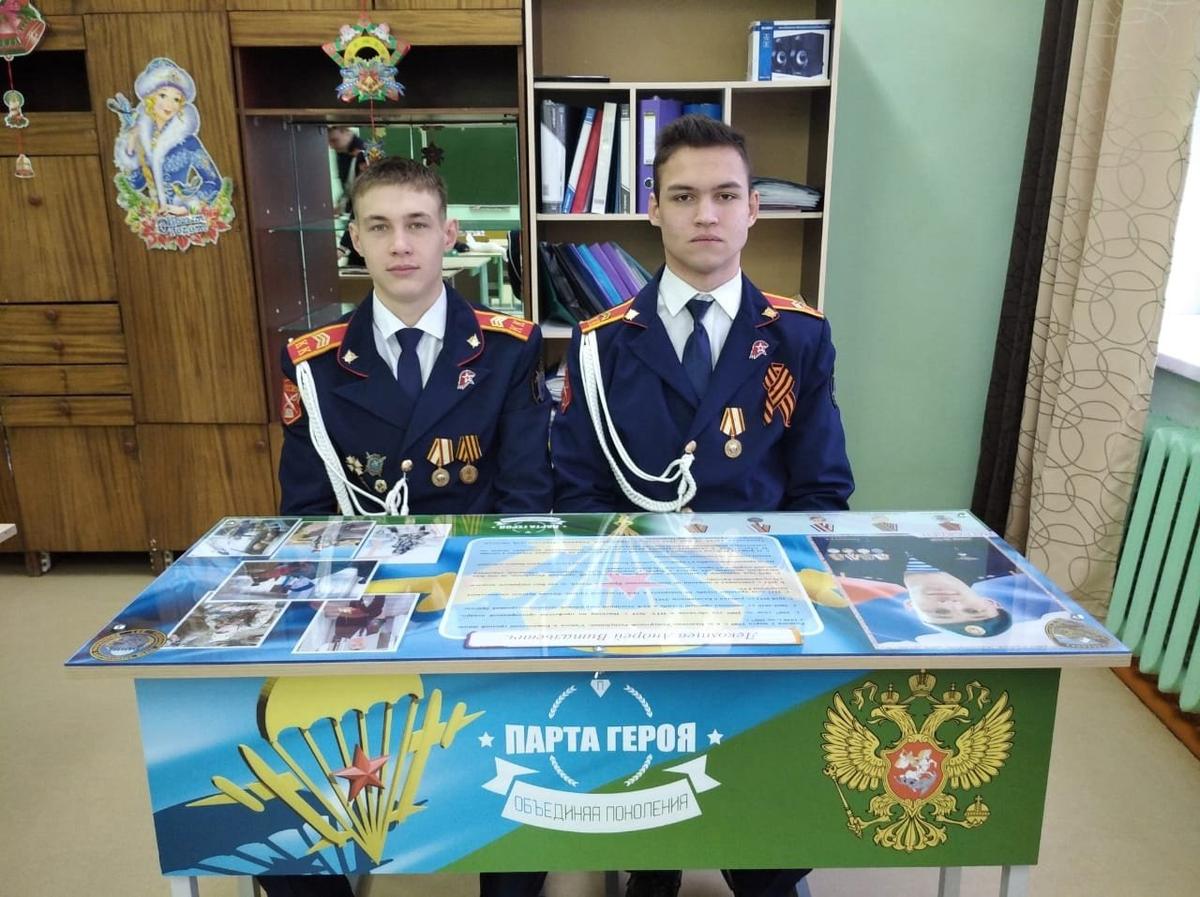
A ‘hero’s desk’. Photo: VK
Sometimes schools also mount commemorative plaques to those who were killed in the war. This turns out to be an even more solemn occasion: children stand beside it as a ceremonial guard and lay flowers on special occasions.
Andrey Lekomtsev, a graduate of a village school in Udmurtia, went to war immediately after he had left school in 2014 when he was first deployed to Crimea and then to Syria. In May 2022, he was killed in Ukraine. The school he went to when he was a child mounted a commemorative plaque and a hero’s desk in his name.
Six months later, the school also arranged a Day of Remembrance, inviting the soldier’s family and friends, while children were acting as “ceremonial guard” beside the plaque.
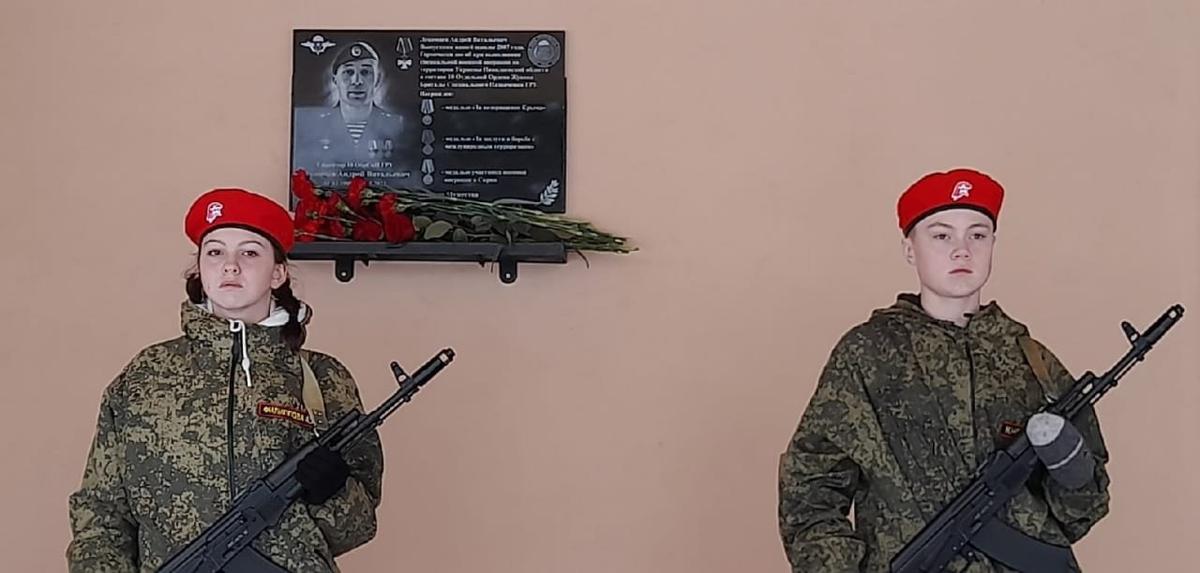
School students beside a commemorative plaque on the Day of Remembrance. Photo: VK
The Education Ministry finds new grounds to remind children of the war each month. In March 2023, it was the “Talisman of Good Deed” campaign. Throughout the spring, Russian schoolchildren crafted all sorts of trinkets for the military: origami, toys, or postcards to be sent to the frontline. The Ministry reported that during the first week of the campaign, “children created over 50 thousand talismans for the participants of the special operation so that every defender could feel the care for them”.
School children from a village in the Altai region sewed key chain toys, cadets from Barnaul crafted bags with wishes and prayers, and teenagers from the Omsk region carved paper hearts with Z letters on them.
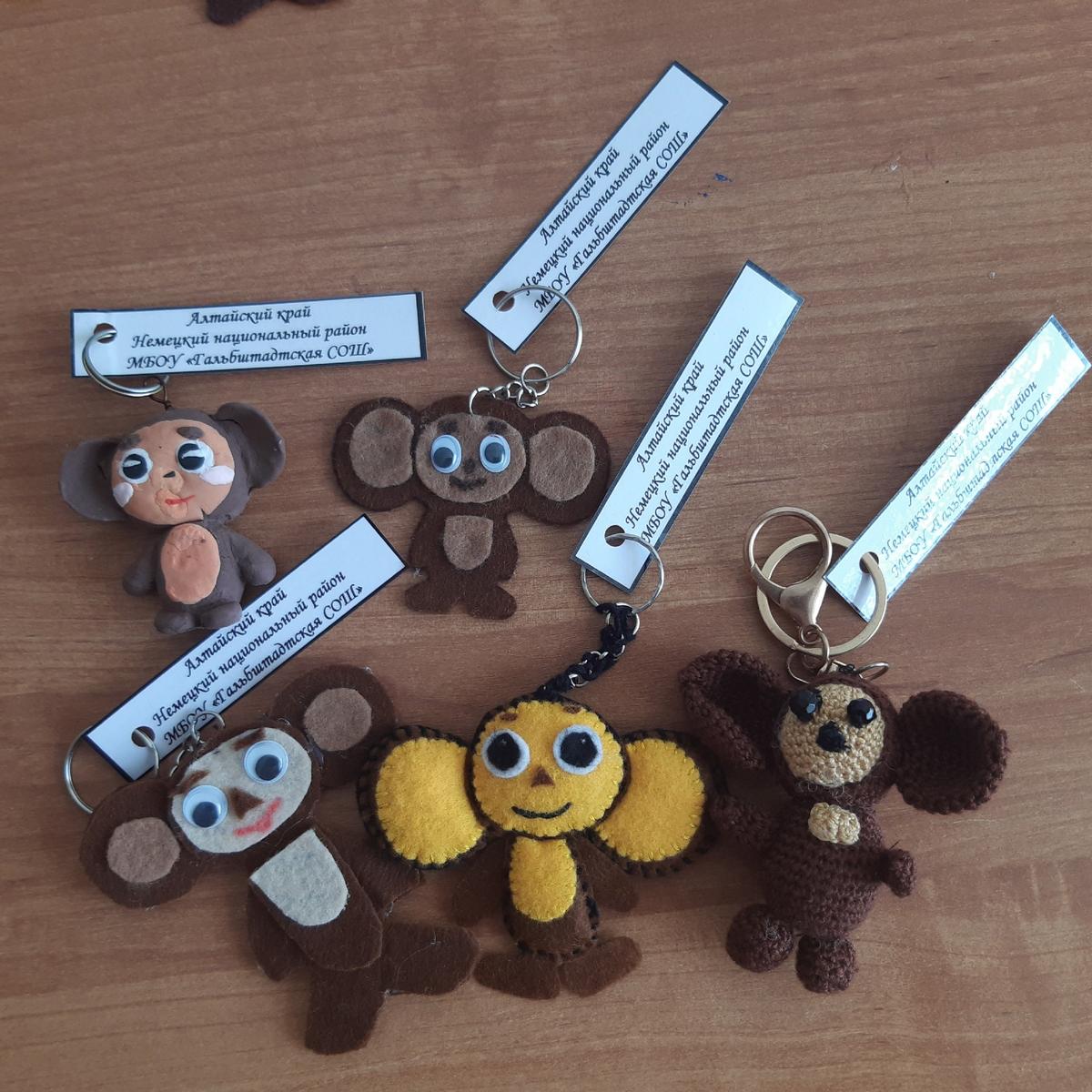
A school in Halbstadt, Russia’s Altai region. Photo: VK
In April, a new campaign was started, labelled “An Easter Postcard”. Children would send greetings and bake Easter bread for the servicemen.
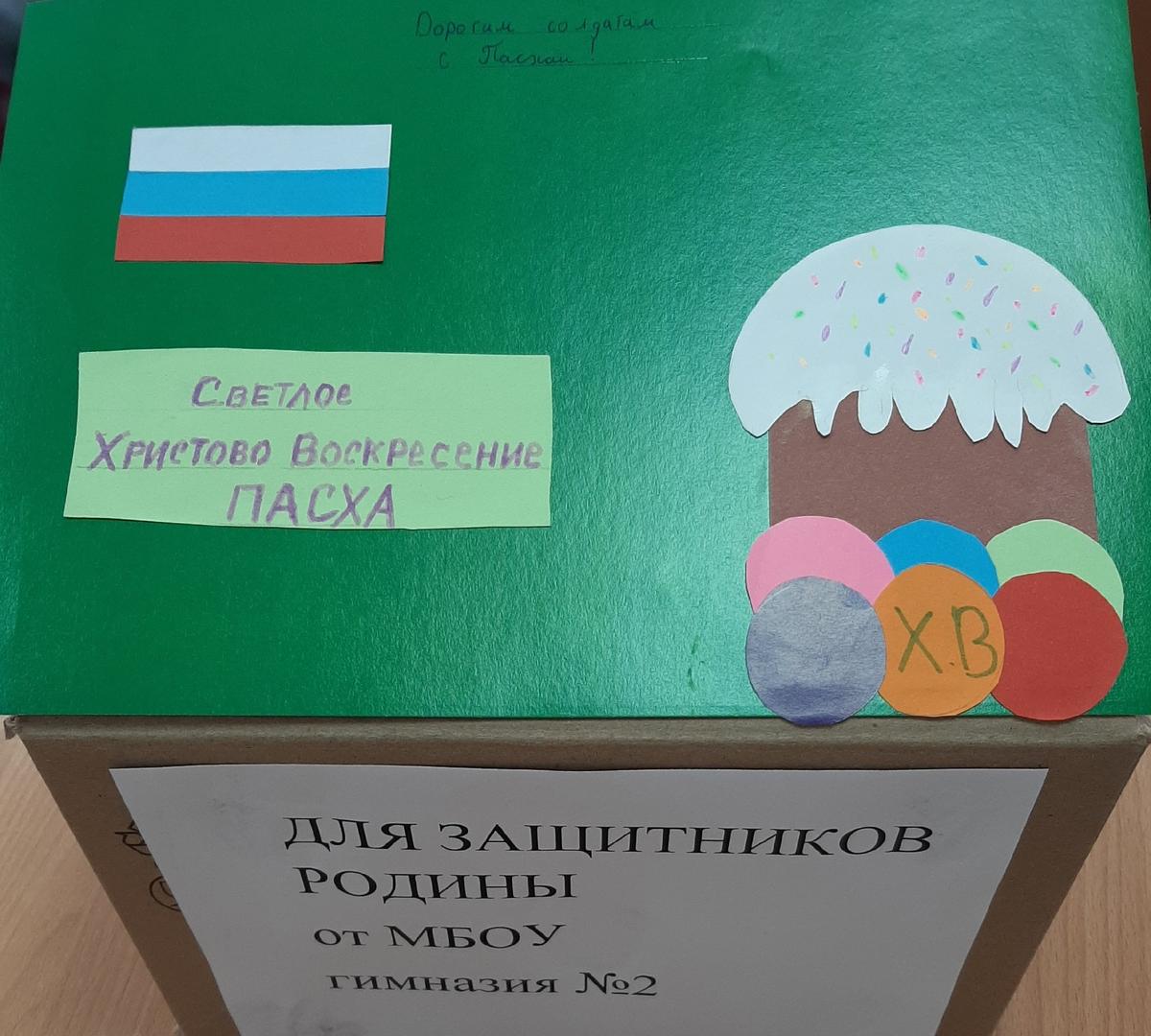
A box with Easter gifts crafted by schoolchildren for Russian soldiers. Voronezh. Photo: VK
The next month, a new campaign was initiated, coined “The Victory Letter”. Letter campaigns existed before the war as well, but instead of congratulating veterans of WW2, now the schoolkids are to send letters to the “special operation” participants.
Not only Easter bread and trinkets go to the frontline from Russia’s schools, but also hygiene supplies, food, and military equipment. From the very start of the invasion, children have been crafting camouflage netting and “trench candles”, and not just during extra-curriculum hours.
During the entire academic year, students of the Syktyvkar vocational school have been crafting stretchers and pullovers for the conscripts. Those are mandatory activities, but the students are often forced to speak of it as of their own initiative, the Teachers’ Alliance notes.
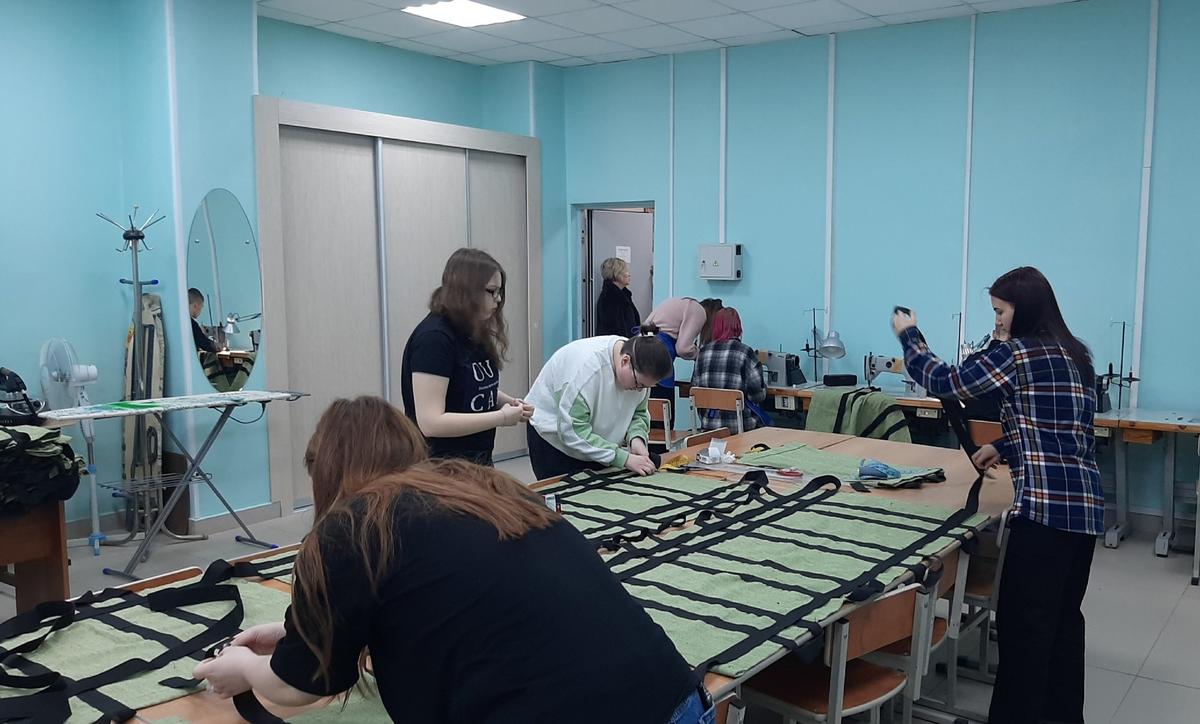
Students of the Syktyvkar vocational school craft stretchers and pullovers for the conscripts. Photo: VK
Welding students from the regions of Rostov and Kirov craft potbelly stoves for the servicemen.
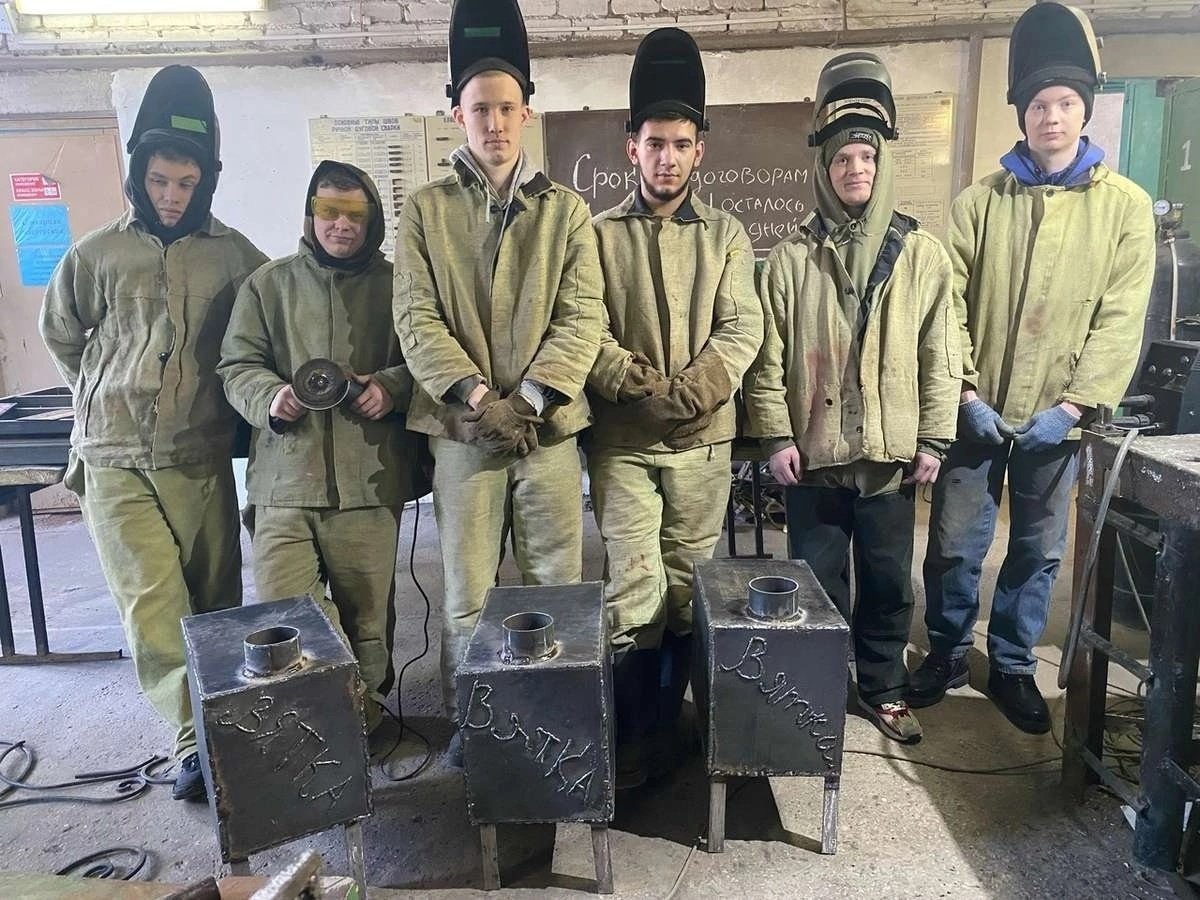
Students of the Vyatka vocational school. Photo: VK
During the war, educational institutions held more than 14,000 campaigns to collect humanitarian aid, as well as more than 3,000 to craft camouflage nets and trench candles.
Daniil Ken, the leader of the Teachers’ Alliance, notes that most often those activities are arranged by the local authorities; however, the collection of humanitarian aid is presented not as a task from officials, but as an appeal from some charity foundation.
Social mobility to the frontlines
In the spring, the largest advertising campaign for contract service since the beginning of the war began: this is how the authorities are trying to recruit as many soldiers as possible into the military in order to fill the gaps on the front line. As Novaya-Europe reported earlier, advertising of military service appeared in transport, in the hallways of apartment blocks, and even in hospitals.
Educational institutions are no exception: they are directly advertising recruitment to the frontlines.
On 19 May, Year 7 school students in Chuvashia’s Kugesi were visited by the local draft officer. The school called this class “A lesson of courage”. The man told the teenagers about the procedure of signing up for contract service, and what repercussions they may face should they try to dodge the draft.
Such activities have been arranged nationwide since February. In addition, schools have started to post direct calls to go to war right after the final exams. There were over a thousand posts mentioning narratives like “Join our ladZ” or “Being a defender of your Homeland is honourable”; 150 of those posted by kindergartens.
What the ‘Important Conversations’ classes are about
Since 1 September 2022, military and patriotic education has been made mandatory for school students: in each school, every week starts with the national flag hoisting ceremony and a patriotism class.
Neither teachers nor students may ignore those classes. The topics for those lectures have been provided by the Education Ministry. One of the recent topics was Victory Day, as well as the heroic feats of the Russian military.
All Russian schools have held 35 Important Conversations classes since the start of the academic year. For each class, the Education Ministry records a video, with speakers including Foreign Minister Sergey Lavrov and Russia’s Patriarch Kirill. Among the topics that teachers are obliged to touch upon during those lectures are patriotism, historical memory, and traditional family values.
The Important Conversations classes have even reached Russia’s kindergartens: in April, a Russian serviceman paid a visit to a daycare in the Kaluga region.
“We knew this wouldn’t be easy. After all, telling the pre-schoolers about the war is not an easy task. The most important thing here is not to scare them, but rather to assure them that we are protected by courageous warriors,” the kindergarten’s group posted. After the lesson, kids would present paintings and angel-shaped talismans to the serviceman.
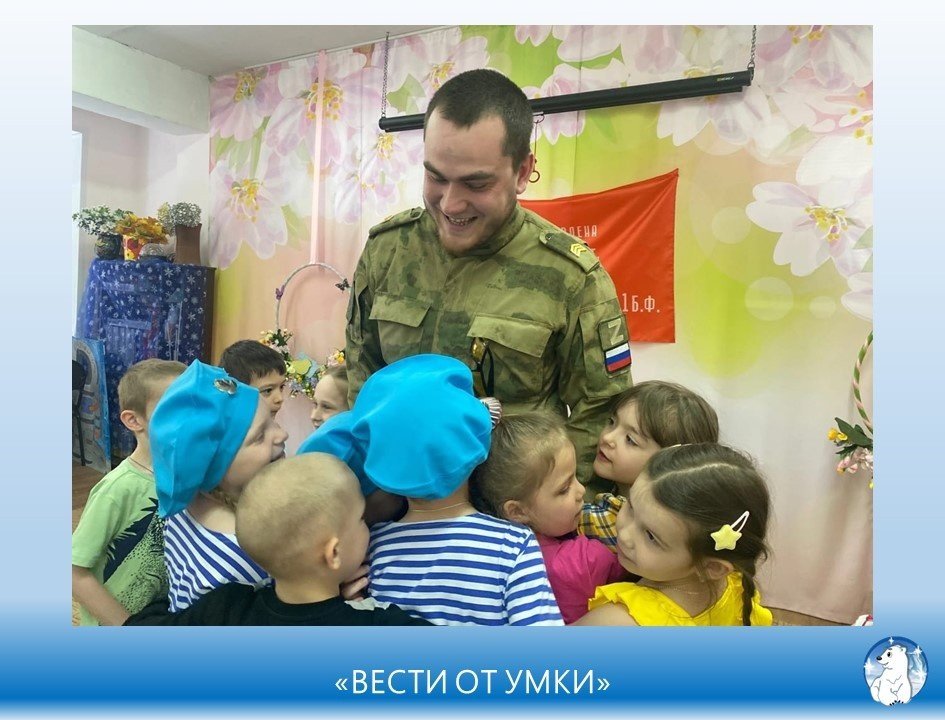
A kindergarten in Tovarkovo, Kaluga region. Photo: VK
“Speaking in strict legal terms, not only are teachers not obliged to hold those classes, but they are also not entitled to do so. The law on education bans propaganda and political agitation,” Daniil Ken says. “It is obvious, however, that if a teacher refuses to hold this class and addresses the labour inspection or the prosecutor, they will be rejected. They will also face serious problems at work and most likely will be dismissed.”
Starting 1 September 2023, the Education Ministry is also planning to add one more patriotic education class, namely an extra-curriculum course of history. These classes will be introduced for all grades, Sergey Kravtsov, the education minister, said.
In addition to the extra classes, the “reasons and consequences behind the special operation” will also be added to the mandatory regular history curriculum starting the upcoming academic year.
Recreating youth movements and military education
The most recent Important Conversations class was dedicated to the new youth organisation, called the Movement of the First. It was established last year when Putin signed a decree to create a clone of the Soviet Pioneer movement.
Although Putin’s spokesman Peskov denies any connection, the president himself even proposes that the old Soviet name be kept.
In just one year, the movement spanned over more than 40 regions, and is going to be represented in all 89 regions of the country by 2024, Putin says.
The Movement of the First is aimed at recreating the structure to implement the Kremlin’s policy on educating the youth, Daniil Ken notes. Members of this organisation are presented as the legacy of the Pioneers, he adds.
Before the creation of the Movement, at least two similar organisations were active in Russia: the Russian Movement of School Students and Yunarmiya (or the Young Army Cadets National Movement).
The latter is directly connected with militarism, and its members never made any secret of it.
There are over a million children in Yunarmiya as of now. Since the start of the Ukraine war, Yunarmiya has held 90,000 patriotic activities, and most of those are related to the military agenda. In addition to the Zarnitsa game in which the kids, for instance, learn to assemble AK-47s, the members of Yunarmiya stand guard beside commemorative plaques and craft camouflage netting.
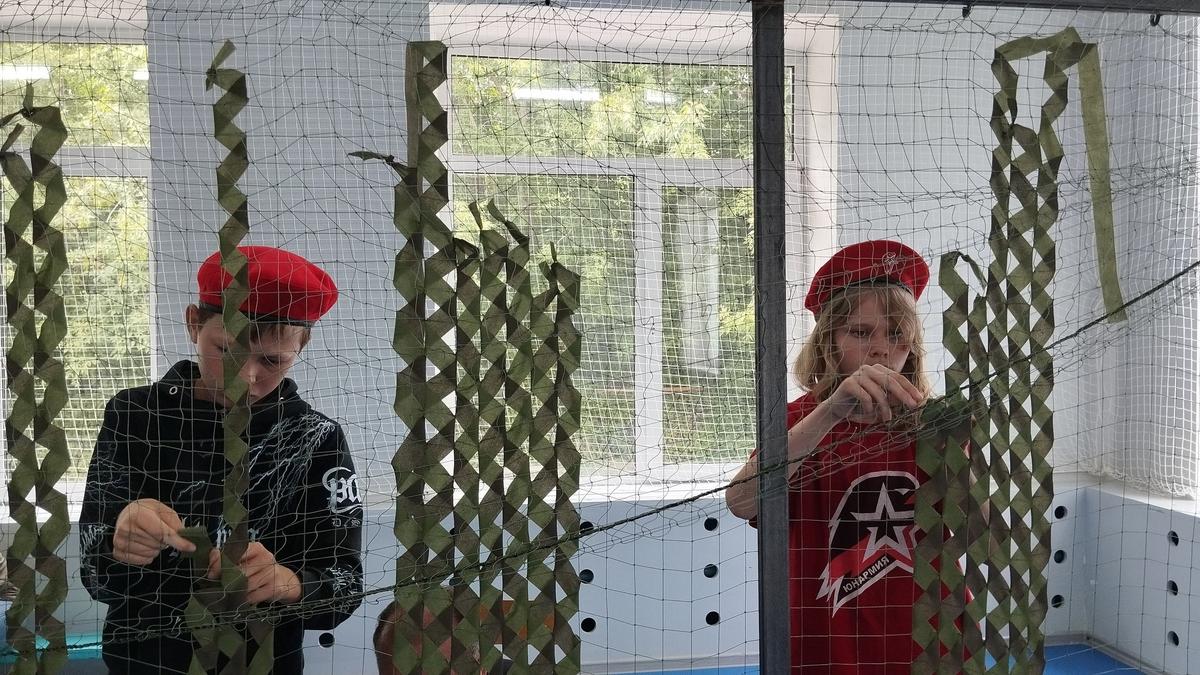
A school in the Tambov region. Photo: VK
On top of that, a course of preliminary military training is expected to make a comeback to Russian schools in the new academic year, now as part of the Basic Safety curriculum. This class will now be called Basic Safety and the Protection of Homeland.
Preliminary military training is a Soviet-era class. In June 2022, members of the St. Petersburg legislation addressed the federal government, suggesting that the class be returned to schools.
Starting 1 September, high school students will be taught how to handle a Kalashnikov assault rifle, how to use F-1 and RGD-5 grenades, and how to provide first aid. The most alarming sign is that the Defence Ministry suggests that former servicemen be granted priority to teach those classes.
“A child’s psyche absorbs almost everything that goes on around it, and this is how a child’s perception of what’s normal is formed. If a child has to deal with throwing grenades in school, this is going to become normal for them as well. We normalise violence,” says Ekaterina Ternovaya, a psychiatrist. “Children start to think that if there is a threat, one has to know how to defend against it. As a result, a very young person is facing great responsibility. The one they have never chosen to face. This greatly affects their perception of reality.”
Join us in rebuilding Novaya Gazeta Europe
The Russian government has banned independent media. We were forced to leave our country in order to keep doing our job, telling our readers about what is going on Russia, Ukraine and Europe.
We will continue fighting against warfare and dictatorship. We believe that freedom of speech is the most efficient antidote against tyranny. Support us financially to help us fight for peace and freedom.
By clicking the Support button, you agree to the processing of your personal data.
To cancel a regular donation, please write to [email protected]
